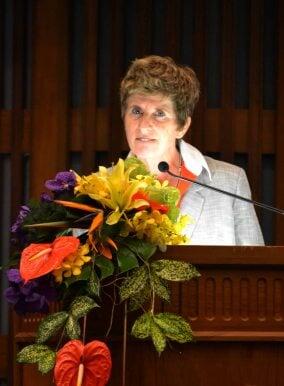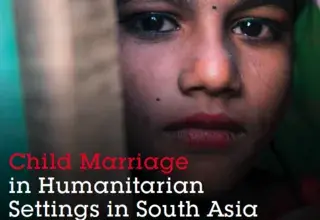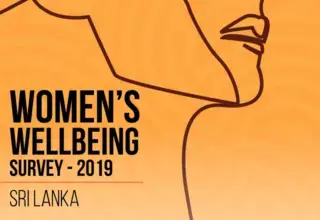As prepared for delivery at the Ministerial Segment of the Sixth Asia Pacific Population Conference, Bangkok, Thailand.
His Excellency Mr. Anote Tong, President of Kiribati
Mr. Phongthep Thepkanjana, Deputy Prime Minister of Thailand
Mr. Shun-ichi Murata, Deputy Executive Secretary of the Economic and Social Commission for Asia and the Pacific
Excellencies,
Distinguished delegates and participants,
Ladies and gentlemen,
On behalf of our Executive Director, allow me to say that it is a true honour to join you on the occasion of this Sixth Asia Pacific Population Conference.
I would like to take this opportunity to thank the the Kingdom of Thailand’s Minister of Foreign Affairs for generous hospitality in hosting this Conference.
I would also like to thank Dr. Noeleen Heyzer, the Executive Secretary of the Economic and Social Commission for Asia and the Pacific, for the strong partnership in organizing this conference. ESCAP has a long history of working in population, dating back to the first APPC in 1963.
In these brief days together we are to deliberate on the most certain pathways by which we may ensure that, across this magnificent region, each and every person attains the highest possible level of health and well-being, enjoys their human rights inalienable and indivisible, and thereby realizes their full potential and lives in dignity.
Rights as the building block of inclusive, sustainable development is the heartbeat of the Programme of Action of the International Conference on Population and Development. Rights are its core principles but it is the individual person who is its prototype and it is the nature and state of being fully human that rights seeks to define: the space and stuff of our individual uniqueness as willful, talented, entitled and creative resourceful and resilient beings.
Issued nearly 20 years ago, the Programme of Action – a promise renewed, affirmed and upheld by the international community at each of several subsequent periodic reviews, evidences a community of commitment comprised of more than 170 nations. That community, among whose ranks this region stands tall, affirmed that each of us matters, each one of us counts. It underscores that none of us is entitled to turn our backs on any of us. And that the inherent dignity of each of us is basis on which all of us may found more sustainable, viable, inclusive communities.
Such rights, aspirations and dignities - the essence of our shared humanity - are not made material and consequential only as we dispense them to others. Indeed, they are not ours to grant.
Rather, rights authenticity is verified in the deep longings that each of us carries for ourselves. Who among us actively seeks to surrender, suspend or subvert his or her own dignity? Who in this room for example, works to decry his or her own privacy; to reject or denounce his or her own physical or mental autonomy; to not exercise his or her own sexual integrity; to give away up his or her own voice; to weaken or undermine his or her own life, family or future. Rights are not what someone gives to you; they are what no one is entitled to take from you.
Excellencies, Ladies and Gentlemen,
Allow me to acknowledge here that we are honored to meet today in the presence of one of the Cairo Programme of Action’s principal architects – a daughter of the Asia Pacific region; a gallant, gracious and germane giant of audacious hope. Thanks to this Gaudi of audacious hope, Nafis Sadik’s forward looking leadership, crafted in 1994 not an agenda for 1995 or 1996 but for 2006, for 2016 and for far beyond.
We have her example to follow: in that the test of the vision we set out here in these few hours together is NOT in where we commit to travel today but rather where we might bravely travel tomorrow and for the decades ahead.
The Asia Pacific region has made remarkable progress in development over the past 20 years. But economic growth has far outpaced social development and much is left to be done.
While more couples and individuals have access to sexual and reproductive health and rights today, the region’s poorest people, those living in rural or remote geographic areas, indigenous or minority groups, people living with disabilities, migrants, those subjected to bigotry or discrimination - still do not have access to the necessary information, services and legal protections that make material their inherent human dignity.
Although home to the world’s largest population of adolescents and youth, Asia and the Pacfic’s young people confront more barriers than support as they make their way from childhood to adulthood. Gender inequality undermines women and girls decision-making about their sexual and reproductive health and this is not merely a preserve of ideology or of cultural difference. This is human suffering. Each year, thousands of women die when giving life, despite the fact that their deaths are readily affordably preventable.
The simplest protection against this tragedy is access to the information and services that would allow women everywhere to choose when to be pregnant, how often to be pregnant and at what intervals. And yet, over one third of pregnancies in the region are unwanted, many of which result in unsafe abortion.
Discrimination and stigma also drive other erosions of sustainable development such as the HIV epidemic. Laws and policies inhibit its eradication blocking access to essential services for those most affected, including sex workers, men who have sex with men, transgender people and people who inject drugs, to life-saving HIV services, as well as broader sexual and reproductive health services.
Gender based violence, early marriage and early pregnancy combine to deny adolescent girls the opportunities – which only completing secondary and continued education provide.
As we consider our progress alongside the gaps we are yet to fill, and as the global community charts the path ahead beyond 2015, we are duty bound to recall that sustainable inclusive development has but one purpose and that is to uphold the inherent dignity of all people.
There is no development worthy of the name that creates and broadens the gap between rich and poor; that fails to address the needs of women or to support the aspirations of young people, that ignores the fundamental longing of each and every one of us to realize our potential and to be confident that we are creating the conditions in which our children and their children will more comprehensively live in dignity.
Focused and courageous leadership draws out the best from those it leads. As you decide here on the region’s position for the ICPD’s agenda for the years ahead, let us set a course for a future whose hall marks are brave and visionary – for tolerance, inclusiveness, justice and dignity.
You will hear over these coming days many words spoken but they will be very few compared to the multiple reams of MDG related documents, words exchanged, language drafted and resolutions passed that clog the United Nations systems as the international community struggles to join up the sustainable development goals to the post-millennium development goals.
But it is possible to put the challenge in a most simple form: Tomorrow is today aged 10 and it’s a girl: If we change the life of that 10-year-old girl, we will change the world.





